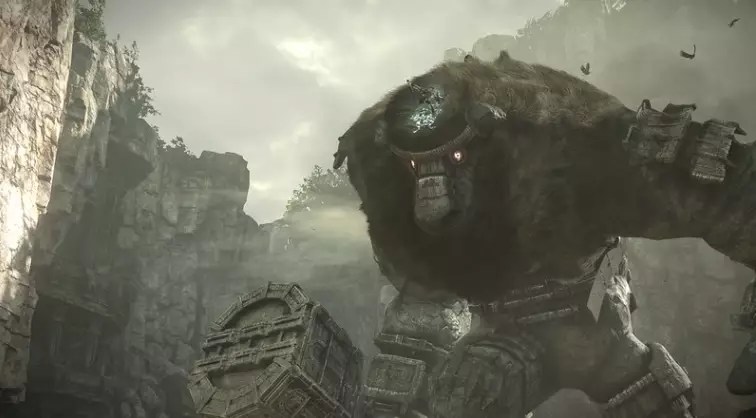The journey to transform “Shadow of the Colossus,” a beloved video game released in 2005, into a cinematic experience has been fraught with challenges and setbacks. Over a decade has passed since plans for a film adaptation were initially conceived, but despite the enthusiasm from fans and filmmakers alike, the project remains in limbo. Andy Muschietti, the film’s current director, has characterized the game as a “masterpiece” and expressed his appreciation for its rich narrative and immersive experience. However, the heart of his message during a recent interview revolves around the practical challenges of financing a project that, while critically acclaimed, might not guarantee box office success.
Muschietti illustrated the harsh reality of movie production, particularly for adaptations of cult classics. While “Shadow of the Colossus” boasts a dedicated fanbase, its niche appeal poses a significant obstacle when it comes to securing a big-budget studio investment. In his comments, he referenced the considerable sums often associated with high-profile film projects, noting that studios are typically reluctant to invest exorbitantly in material that doesn’t guarantee wide mainstream appeal. This predicament highlights the broader issue of how the entertainment industry evaluates the worth of film adaptations, especially for stories rooted deeply within specific subcultures or genres.
Muschietti’s involvement in the project reflects a broader trend in Hollywood where established directors are sought for projects that carry a weight of cultural significance. Initially, Josh Trank was attached to the project, signifying a hopeful trend toward integrating gaming narratives into the film medium. However, after a change in directorial vision in 2014, Muschietti began to carve out his own path in the industry with hits like “It” and “The Flash.” This evolution demonstrates not only the fluid nature of Hollywood projects but also highlights how directors can become symbols of promise—or uncertainty—when attached to long-gestating adaptations.
As “Shadow of the Colossus” awaits its potential cinematic debut, the landscape is shifting with several new video game adaptations already scheduled for release in 2025. The development of films such as “Minecraft,” “Until Dawn,” “Mortal Kombat 2,” and “Five Nights at Freddy’s 2” suggests a growing interest in exploring video game narratives in live-action formats. Meanwhile, the success of shows like HBO’s “The Last of Us” attests to the viability of storytelling derived from video game properties. This saturation of adaptations presents both an opportunity and challenge for “Shadow of the Colossus,” as it must differentiate itself in a crowded market.
Despite the uncertainties, Muschietti’s optimism is refreshing and reflects a desire to bring the extraordinary world crafted by Fumito Ueda to life. The emotional depth and existential themes present in the game merit serious exploration within a filmic context, and Muschietti seems determined to negotiate the hurdles that lie ahead. Whether he ultimately receives the necessary backing to realize this vision remains an open question, but for fans of both the game and the medium, the prospect of finally seeing “Shadow of the Colossus” on the big screen continues to be a tantalizing dream. As the industry evolves, so too may the fortunes of this longstanding project, reminding us that in Hollywood, hope and creative ambition often walk hand in hand with the unexpected twists of fate.


Leave a Reply